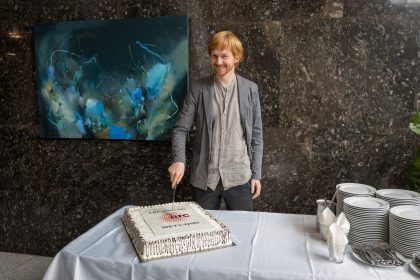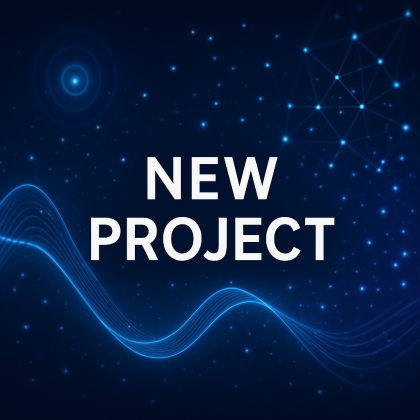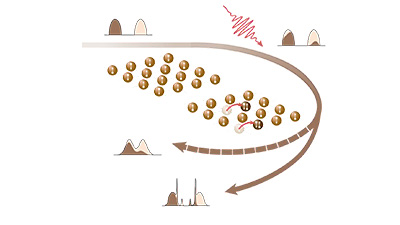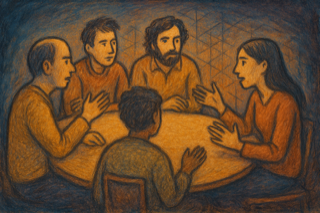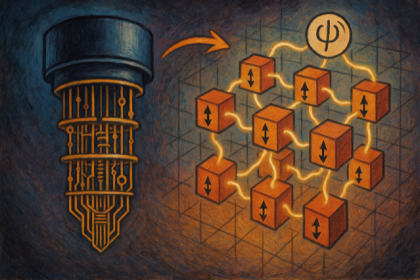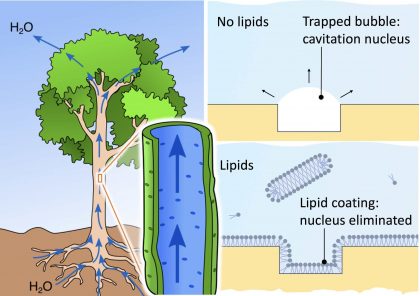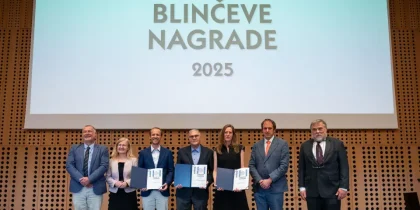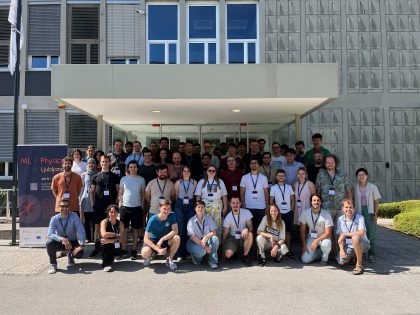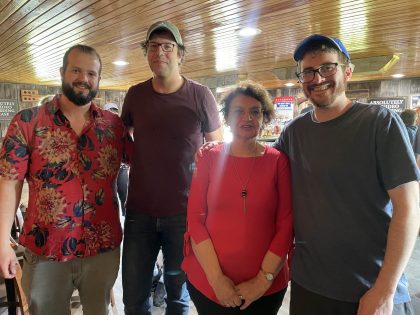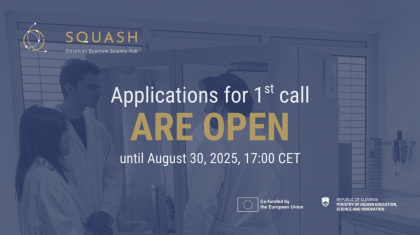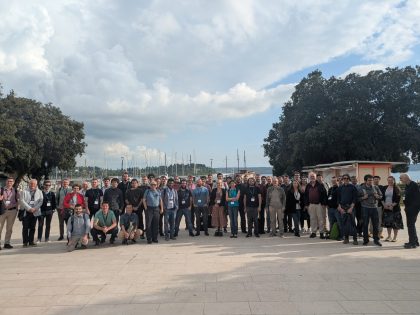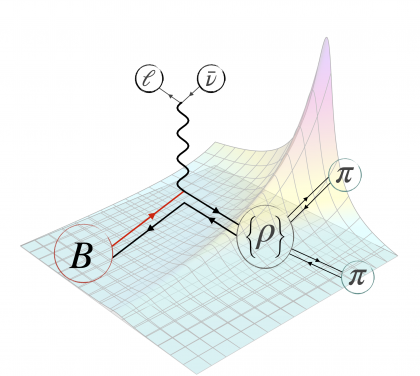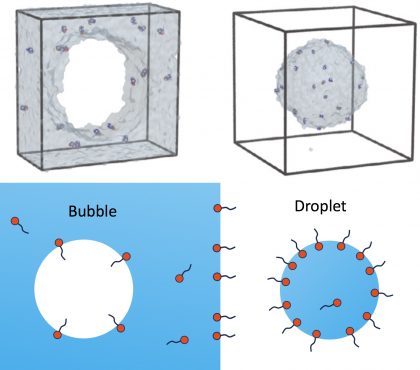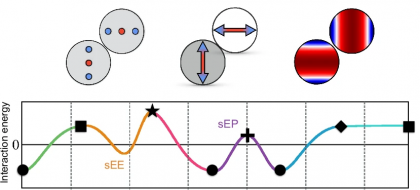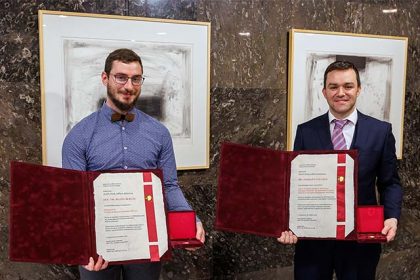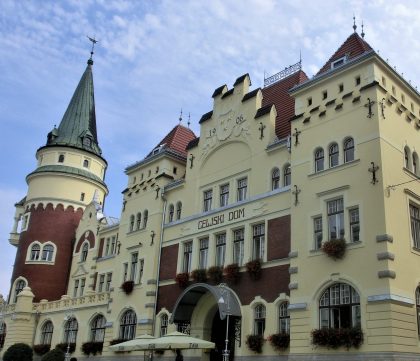Highlights
Dr. Denis Golež Awarded Prestigious ERC Consolidator Grant for Project Meta-QMS
We are pleased to announce that the European Research Council (ERC) has selected dr. Denis Golež, a researcher at our Department, as a recipient of the prestigious ERC Consolidator Grant. The project, titled “Meta-QMS” (Metastability in Quantum Materials and Simulators), … Read More
New Bilateral Project JSI-CNR: Dissipative quantum dynamics of many-particle systems (DISQU), dr. Zala Lenarčič
We are pleased to announce that the project DISQU (Dissipative quantum dynamics of many-particle systems) has been selected for funding under the call for scientific cooperation between the Jožef Stefan Institute (JSI) and the National Research Council of Italy (CNR). … Read More
New publication by dr. Denis Golež
Dr. Denis Golež, colleague our Department, together with colleagues from Japan, Germany, and Switzerland, has published a review in the Review of Modern Physics of current knowledge on how laser pulses can be used to transform quantum states in materials … Read More
Round-table to mark the closing of the International Year of Quantum Science and Technology
On 3 December 2025, the research community in Slovenia will come together for a round-table discussion marking the end of the International Year of Quantum Science and Technology, held under the framework of this year’s Science Month. The event — … Read More
Participation of prof. dr. Rok Žitko at Slovenian Quantum Computing Day
The first Slovenian Quantum Computing Day will take place on Thursday, November 6, 2025, from 9 a.m. to 1 p.m. at Rudolfovo – Science and Technology Center Novo mesto, in the LabTOP space, Podbreznik 15, 8000 Novo mesto. The forum … Read More
JCIS publication by M. Šako and M. Kanduč: How plants keep their water intact
It’s often thought that liquids cannot be stretched — pull on them, and they simply break by forming bubbles. Yet remarkably, plant sap flows under negative pressures of up to –100 atm without forming bubbles. We show that amphiphilic molecules … Read More
Med letošnjimi prejemniki Blinčevih nagrad tudi dr. Zala Lenarčič z odseka F1
V petek, 10. oktobra 2025, sta v Kongresnem centru Brdo pri Kranju Fakulteta za matematiko in fiziko Univerze v Ljubljani (UL) in Institut Jožef Stefan (IJS) podelila Blinčeve nagrade za raziskovalno in strokovno delo na področju fizike, ki so namenjene … Read More
Successful Conclusion of the ML4Physics Summer School in Ljubljana
The Machine Learning for Physics (ML4Physics) Summer School successfully concluded last week in Ljubljana, Slovenia, bringing together 55 participants — 47 from abroad — for a week-long deep dive into the intersection of machine learning and physics. The school was … Read More
Department Members Deliver Plenary Talks at FPCP 2025
At the Flavor Physics and CP Violation (FPCP) 2025 conference (Cincinnati, June 2–6, 2025), Svjetlana Fajfer and Luka Leskovec from the Department of Theoretical Physics delivered invited plenary talks. Prof. Fajfer opened the conference with “Flavor Physics and CP Violation: From the Standard Model … Read More
SQUASH Fellowship Program: 1st Call for Postdoctoral Researchers
The Jožef Stefan Institute is announcing a public call for participation in the SQUASH program – the Slovenian Quantum Science Hub. This is an innovative, intersectoral training and career-development program, co-funded by the Marie Skłodowska-Curie Actions program GA n. 101177446 … Read More
Particle Physics Workshop in Portorož
Members of the High Energy Group Physics group have successfully organized international workshop Portorož 2025: Particle Physics from the Early Universe to Future Colliders, 21. – 25. April, bringing together leading physicists to explore key topics in elementary particle phenomenology and theory. The meeting focused on … Read More
doc. dr. Luka Leskovec: New Publication in Physical Review Letters
Doc. dr. Luka Leskovec and his collaborators recently broke new ground in lattice QCD. In their latest Editor’s Suggestions of Physical Review Letters, they present the first ab initio calculation of the semileptonic decay B → ρ ℓ ν, fully accounting for … Read More
Dr. Denis Golež Awarded Prestigious ERC Consolidator Grant for Project Meta-QMS
We are pleased to announce that the European Research Council (ERC) has selected dr. Denis Golež, a researcher at our Department, as a recipient of the prestigious ERC Consolidator Grant. The project, titled “Meta-QMS” (Metastability in Quantum Materials and Simulators), … Read More
New Bilateral Project JSI-CNR: Dissipative quantum dynamics of many-particle systems (DISQU), dr. Zala Lenarčič
We are pleased to announce that the project DISQU (Dissipative quantum dynamics of many-particle systems) has been selected for funding under the call for scientific cooperation between the Jožef Stefan Institute (JSI) and the National Research Council of Italy (CNR). … Read More
New publication by dr. Denis Golež
Dr. Denis Golež, colleague our Department, together with colleagues from Japan, Germany, and Switzerland, has published a review in the Review of Modern Physics of current knowledge on how laser pulses can be used to transform quantum states in materials … Read More
Round-table to mark the closing of the International Year of Quantum Science and Technology
On 3 December 2025, the research community in Slovenia will come together for a round-table discussion marking the end of the International Year of Quantum Science and Technology, held under the framework of this year’s Science Month. The event — … Read More
Participation of prof. dr. Rok Žitko at Slovenian Quantum Computing Day
The first Slovenian Quantum Computing Day will take place on Thursday, November 6, 2025, from 9 a.m. to 1 p.m. at Rudolfovo – Science and Technology Center Novo mesto, in the LabTOP space, Podbreznik 15, 8000 Novo mesto. The forum … Read More
Med letošnjimi prejemniki Blinčevih nagrad tudi dr. Zala Lenarčič z odseka F1
V petek, 10. oktobra 2025, sta v Kongresnem centru Brdo pri Kranju Fakulteta za matematiko in fiziko Univerze v Ljubljani (UL) in Institut Jožef Stefan (IJS) podelila Blinčeve nagrade za raziskovalno in strokovno delo na področju fizike, ki so namenjene … Read More
JCIS publication by M. Šako and M. Kanduč: How plants keep their water intact
It’s often thought that liquids cannot be stretched — pull on them, and they simply break by forming bubbles. Yet remarkably, plant sap flows under negative pressures of up to –100 atm without forming bubbles. We show that amphiphilic molecules … Read More
Published in JCIS: Surfactants feel the curvature
New research by Fabio Staniscia and Matej Kanduč, published in the Journal of Colloid and Interface Science, reveals how the shape and size of water nanodroplets and nanobubbles influence the adsorption of amphiphilic molecules. Using molecular simulations, the study shows … Read More
Work on anisotropic electrostatic interactions between charged particles published in Nat. Commun.
Electrostatic interactions play a key role in the behavior of soft and biological matter, yet their complexity increases when particle charge distributions are inhomogeneous. Dr. Anže Božič and his collaborators from FMF, University of Padova, and TU Wien recently published … Read More
Our former colleague has been awarded the Jožef Stefan Golden Emblem
On 26 March 2025, the Jožef Stefan Institute awarded the Jožef Stefan Golden Emblem to encourage young researchers to be even more committed to scientific research, which is also a kind of call to action for the economy to use … Read More
33. dnevi Jožefa Stefana I 33. Days of Jožef Stefan, 24. – 29. 3. 2025
Obveščamo vas, da bodo od 24. do 29. marca tradicionalno potekali Dnevi Jožefa Stefana, ki jih že od leta 1993 izvajamo v počastitev rojstnega dneva slovitega fizika Jožefa Stefana, katerega ime nosi naš inštitut. To je teden, ko odpremo vrata … Read More
Dneva biofizike 2025
Konferenca Dneva biofizike 2025 bo potekala 5. in 6. junija 2025 v Celjskem domu v Celju. Konferenca bo združila raziskovalce s področja biofizike ter sorodnih ved in ponudila priložnost za izmenjavo idej, predstavitev aktualnih raziskav in interdisciplinarno povezovanje. Še posebej … Read More


